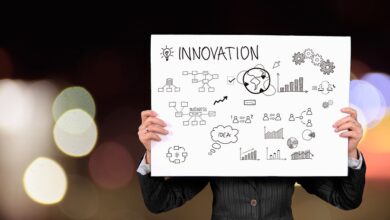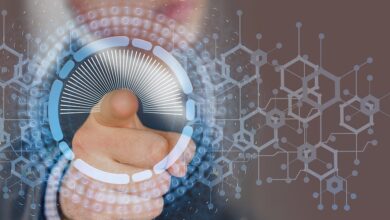
Innovation in Action: Real-World Applications of Breakthrough Technologies
In today’s rapidly evolving world, innovation is not just a buzzword but a necessity that drives societal progress and economic growth. Breakthrough technologies, once confined to the pages of science fiction, are now becoming an integral part of our daily lives. These innovative solutions have the potential to reshape industries, redefine our experiences, and pave the way for a future that was unimaginable a few decades ago. Understanding how these technologies are applied in real-world scenarios highlights their significance and presents a glimpse into the future shaped by human ingenuity and technology.
One remarkable example of such innovation is the advent of Artificial Intelligence (AI) and Machine Learning (ML). These technologies have transcended beyond their traditional realms to revolutionize various sectors. In healthcare, AI technologies are being deployed for predictive analytics, helping in early disease detection and personalized treatment plans. Such applications not only improve patient outcomes but also significantly reduce healthcare costs by optimizing resources and eliminating inefficiencies.
Another compelling case is the use of Blockchain technology, which offers unprecedented security and transparency benefits. Initially conceptualized for cryptocurrencies, Blockchain has found applications in supply chain management, enabling companies to track the production, shipment, and delivery of products in real-time. This not only enhances operational efficiency but also builds consumer trust by ensuring product authenticity.
The Internet of Things (IoT) is another breakthrough technology transforming everyday objects into interconnected, intelligent devices. Smart homes equipped with IoT devices can automate tasks, ranging from adjusting the thermostat to ordering groceries, enhancing convenience and energy efficiency. In agriculture, IoT sensors monitor soil moisture and nutrient levels, facilitating precision farming practices that boost productivity and sustainability.
However, the adoption of these technologies is not without challenges. Concerns regarding privacy, security, and ethical implications are at the forefront of the debate. For instance, the extensive data collection by AI and IoT devices raises significant privacy concerns, and the decentralized nature of Blockchain poses regulatory and security challenges. Furthermore, the risk of job displacement due to automation remains a critical societal issue.
Despite these challenges, the potential benefits of these technologies are immense. As we continue to innovate and integrate these technologies into our lives, it is crucial to address these concerns proactively, ensuring a balance between technological advancement and ethical considerations.
In conclusion, the real-world applications of breakthrough technologies illustrate their transformative potential across various sectors. From healthcare and supply chain management to agriculture and smart homes, these innovations are reshaping our world, offering unprecedented opportunities for efficiency, transparency, and convenience. As we venture further into this era of innovation, it is essential to navigate the challenges and ethical dilemmas that arise, ensuring that technology serves humanity’s best interests. The future of innovation is not just about technological breakthroughs but about creating a world where technology enhances the quality of life for all.




